|
When I first went to university at 17 years old, all I wanted was to get a Rhodes Scholarship and pursue graduate study on refugee issues and humanitarian innovation at Oxford. It was an obsession, my sole focus, and the only way I thought I could ever be taken seriously in this world.
Life threw me a few curveballs, and when my Nanna died and my Mum was diagnosed with stage 4 melanoma I had to leave university and start working full time to support our household. I managed to graduate with my Bachelor of Arts degree on time by taking online and evening classes and kept striving towards being the “perfect” Rhodes applicant. I did triathlons to fundraise for melanomaWA, I co-founded Perth SOUP, I managed communications for Urban Refugees, I qualified to provide pro bono migration support to refugees and began to take on clients, I did intensive French and Arabic lessons, and I spent 3 hours a week volunteering with two refugee children who I developed a very close mentoring relationship with — all while working and caring for my Mum who was recovering from spinal surgery. In 2015 when I finally applied for the Rhodes Scholarship, I wasn’t invited to have an interview. But being fixated on that single-minded goal for so long had consequences: I found magic in the journey, deeply loved every single thing I was doing, and managed to rapidly gain the skills and confidence to pursue a career of humanitarian service and advocacy, without an elite institution’s validation. I may not have become a Rhodes Scholar, but instead I completed an internship at United Nations OCHA in NYC, became a finalist for Young West Australian of the year, graduated with a Masters focusing on Humanitarian Action from The Australian National University and landed my dream job in London working to help advocate for tech-enabled development and humanitarian innovation (my current role, but now Atlanta-based!) Today, career-wise I’m lightyears ahead of where I thought I’d be at 25-years-old, and it’s all because I failed in my biggest goal… but thoroughly enjoyed every step of the journey. I haven’t posted anything on this blog for a month. A month! This project started out really ambitious, but obviously when life gets more intense I find that reflecting on myself (and writing about it) every week feels a bit insane. I’m clearly struggling. But my writing has majorly improved due to this process so I want to get back at it, and add in some bonus/extra content so I still make it to 52 published pieces before my 26th birthday in April. Now to get to the point! You want to know what the catchy headline means or you wouldn’t have clicked on this article, right?! So basically I ran my body down so much that I almost passed out and couldn’t make a pre-paid (and not terribly cheap) trip to go to Shape Eurasia in Yerevan, Armenia from 5–8 October. If you follow my writing or know anything about me at all, you’ll know I hate wasting money and have a pretty cavalier disregard for my physical limits. Well not this time. Earlier this year I went to Ukraine and absolutely loved it. It was a totally unknown place to me and I was blown away by how much I learned and how open and friendly everyone was. I have heard similar things about Armenia and had similar expectations, so I was excited to venture much further East, see the country, and go to Eurasia for the first time. Also, as silly as it sounds (it’s the truth so whatever I’ll just own it), I saw the Keeping Up With The Kardashians episode years ago where Kim and Khloe visited and it looked gorgeous — ha. Sounds straightforward right? Yay Armenia, gonna go and have a cool time. Well not so fast! If only this were the singular cool time I had planned. But I have been overpacking my schedule like some kind of crazy person lately, and by the time the trip rolled around I had been in a different country every weekend for a month straight. Basically, next month I move out of London for good. El husbando (Alex) and I will soon settle in Atlanta — our new home (yay). Knowing that I won’t have Europe at my fingertips for much longer, I’ve kicked into travel overdrive and have been away a lot. On Sep 3–4 I was in Zurich, working with UBS on innovative ideas for the future of wealth management, from Sep 9–11 I was in Stockholm visiting Alex who was leading a project for Google there, Sep 15–18 I was in Oslo (visiting Alex again for project phase II), Sep 21–24 we went down to the New Forest in the Southwest of England to celebrate our 2nd wedding anniversary, then Sep 29 to Oct 1 I was in Milan for Shape Europe. And it wasn’t straight travel — in between all of these visits I was back in London, and I was working (either from the office while in London, or working remotely from my hotels) the entire time. At the end of all of this back-to-back travel without a single weekend in London, I was supposed to make the trip to Armenia. But understandably, I was wrecked. I woke up on Wednesday morning, the day I was supposed to fly, with a sore throat and a headache that progressively got worse. I worked from bed that day, hoping I’d somehow perk up and be chipper and healthy. I was also supposed to fly via Moscow and have a 2 hour wait in the airport at 2–4am so I knew I literally wouldn’t sleep. Still — I wanted to go. I was trying to convince myself that all would be magically well, so I whatsapped every single person I respect and told them the situation, hoping someone would convince me it’d be fine and I should fly. But everyone told me to trust my body and not go. I was sitting on my bed with packed bags, just waiting for someone to message me and say it’d be fine. Nobody did, but I still decided I should just tough it out and go. Just before I went to leave home I even posted a Facebook status about how I was sick but still coming on the trip, as though putting something on Facebook would force me to be more committed. I picked up my luggage, said bye to Alex and tried to walk out of the door, then immediately collapsed from weakness, almost lost consciousness and burst out crying. So yeah — decision made for me at that point. I was pretty devastated. I just laid face down in my pillow and had a good cry, feeling sorry for myself and upset about missing the journey, then slept for twelve hours. But even after all of that rest I woke up significantly worse the next morning and spent the next SIX DAYS in bed with the flu. I mean, proper flu. Not when people get a common head cold and call it flu (note: don’t do that peeps). Influenza. Body aches, vomiting, mucus, vomiting mucus (actually happened) — all kinds of exorcist stuff. So even though I was worried that I would, I definitely don’t regret the choice to stay home now. I needed time to heal, and I can’t even imagine how messed up I would’ve been if I had’ve forced myself on those planes without a night’s sleep. I’m back to normal and feeling ready to tackle my next challenges: a hectic time at work with some important projects, travelling to Lisbon for Web Summit, half-moving to Atlanta, heading to Singapore for my Mum’s 60th, then properly-moving to Atlanta.
Even though I’m ridiculously stubborn, I can at least happily say I’ve learned my lesson. Health first, always! I’ll be listening to my body more closely from now on, and not expecting it to perform miracles. I need to make sure I rest, and that’s what I’m going to be doing. I was invited to speak at NetSquared London’s Digital Storytelling eventtonight about digital storytelling for charities. I was grateful to have been thought of as someone with thoughts worth sharing and locked the date into my calendar. I flew home early from a trip to Oslo to ensure I didn’t break my commitment, thinking that my insights might help a few people.
I prepared slides focusing on a few high-level tips I would have found useful earlier in my own charity storytelling journey. My messaging was built around simple fundamentals: to consider your audiences, to evaluate the suitability of digital channels, to optimise for social media. All of the “smart” marketing tips. I walked into that space expecting to be a teacher, and not to be taught. Halfway through my presentation I elected to screen a short video, less than 2 minutes and 20 seconds so it could be natively hosted on Twitter — a technique I espoused. It is ‘mobile-friendly’ and ‘social media optimised’, two concepts I ran through the importance of. It shows all of the key information in text and shots on screen, and has no audio other than a pleasant backing track. It’s a project I have been very proud of, because I believed I managed to bring life and meaning to a topic which could be very dry: APIs. After the video ended, a man from AbilityNet raised his hand and let me know that he is blind, so that entire 2 minute and 20 second period I had made him sit there, with nothing to follow or engage with, excluded. The ‘mobile-friendly’ and ‘social media optimised’ methods had I used actually frozen him completely out of the message and the experience. Wow. I hadn’t thought about that at all. As I considered his comments, I saw awkward glances around the room. Perhaps he felt the mood shift because he then immediately began to apologise to me, while still sharing his perspectives. This in many ways dumbfounded me. Why would he apologise? I’m the one who was exclusionary, and he was going out of his way to educate me and help me realise that. I should be grateful, not in need of an apology. I thanked him for challenging me. I then noted that I foolishly hadn’t considered how ableist the product might be and that I would consider it in the future before I continued my presentation. The atmosphere in the room had noticeably changed though, which I then found incredibly strange, but calmly continued my presentation. People seemed to expect me to be uncomfortable, or perhaps they themselves were uncomfortable. But why? A man who has had a great deal of experience, and works to help people to better design for and include people who have disabilities, taught me something. That’s not an awkward thing, that’s a good thing. Yet that immediate discomfort is a major problem I definitely have with our society (when I say “our” I suppose I mean modern Western society as I’m a foreigner in these lands!) — surely it’s not that difficult for someone to take being called out as a positive, acknowledge it, and learn? Anyone who reads this blog of mine will know I think a great deal about inequality, intersectionality and inclusivity. But I think the most important thing with being an advocate for inclusivity in its many forms is not to assume you already have all of the answers or to hang your identity or pride on that. To actually care about issues that affect marginalised people is to take being challenged with an open mind, and to adapt. When I challenge people for their unconscious racism, sexism or exclusion, I always hope they will say “I hadn’t thought about that, maybe you’re right, I’ll think about it next time” so that’s what I always aim to do myself. I want to continuously strive to learn and grow, not so that I can save face and feel good about myself, but so I can actually do better. We all need to be challenged in order to do better and become better. On my end, this was a gap in thinking that I will ensure won’t occur again. The man who spoke to me about his experience during my talk, found me afterwards to again apologise. I wish he didn’t feel the need to. I am deeply thankful for his patience and his kindness, but his instinct to apologise and to make me feel better (which really is so far from the point) only highlights how difficult these conversations must be to constantly have and how seldom people take on criticism well. That emotional labour should not be his alone, so I hope everyone reading this who wasn’t already aware of these issues can learn the same things I have tonight. This man also gave me a number of wonderful tips on how to improve my communications products so they are more accessible and showed me how he interacts with and uses the internet and digital media. You can read more about AbilityNet’s work on their website. So if there’s one lesson I’m taking from this it is: who am I excluding, and how can I do better?
Yesterday I was incredibly grateful to have been invited by The Smalls Film Festival to speak on the panel Talk The Talk, Walk The Walk — Diverse Representation on Both Sides of the Lens at the Calvert 22 Foundation in Shoreditch.
As with any new opportunity, I didn’t quite know what to expect from the event, nor what the event expected of me — as my background is not directly in ‘film’ but rather in using new forms of media (including audio and visual) for storytelling in my advocacy work.
I also had a rather bad experience during a Q&A panel in 2014, when I travelled to the University of Western Sydney to do a presentation on my work with Urban Refugees. To make a long story very short, I flew the red eye overnight and landed very sleep deprived, so I skipped the keynote session and decided to catch up on rest instead. I also needed to leave at 5pm on the dot, exactly when my own panel ended, in order to make my flight back home. Then at 4.58pm while I was making side-eye at the clock and trying to think of an elegant way to get out of the room, I was then asked a very specific question about the keynote I slept through and had no knowledge of. Catastrophe. One of my early blunders in trying to pack too much into my schedule, which I have since learned from. Still it was somewhat traumatic, and while I have done talks and presentations of sorts, I hadn’t done a direct panel or live Q&A since then. So when I accepted this opportunity, I still felt a bit on edge about all of the questions the audience might ask me, and how I might respond to the other panellists. Though the topics of diversity and intersectionality are never far from my thoughts, something any reader of this blog will know, so I didn’t want to pass it up.
I am proud to say it went extremely well, and I received some excellent feedback after the session. Though my background was wildly different from the other panellists, who each have long histories working in film (festivals, programs, commissioners, editing, producing, you name it — Mia Bays has even produced an Oscar-winning film and won two BAFTAs! Talk about impressive) I somehow managed to meaningfully contribute a very different viewpoint to the discussion.
We managed to bring in our own examples of ensuring that diverse perspectives and backgrounds exist in our work, both in front of and behind the lens. We also delved into the essential benefits of working with cast and crew members of all orientations, genders, cultural backgrounds and abilities. In my own work, this is extremely important when working in local cultural contexts, or with vulnerable women and children, just to give a few examples. Wherever possible, I believe we should be working with local crews and supporting women in the industry— not only because they have greater knowledge and access, but also because we can then invest in more meaningfully developing those ecosystems. So here’s to not writing yourself off based on one bad experience, and to working to ensure that all different kinds of people get to have a voice and contribute to representation in an authentic way. When I was a kid I struggled to connect with my peers. I was interested in a lot of normal kid things, but also a lot of obscure things, and I had very specific ambitions and dreams. At times I found it very isolating because I didn’t fit the kinds of routines or behaviours that would have sustained relationships. I definitely had friends, but while I was a child and even a teenager, I never felt like I truly connected with anyone around my age.
I spent a lot of time filling notebooks with ideas of myself in the future and road maps of how I could get there. Nine-year-old me would spend hours strategising: if I was going to be an actress, I’d need to study drama at school, do community plays and try to get into NIDA or WAAPA. If I was going to be a surgeon and work with MSF, I should be reading books about anatomy and science so I could get top grades and get into UWA medicine. If I was going to be a human rights lawyer, I needed to read about political events and study law, before trying to get into the UN system. On and on these hypothetical strategies went, because I wanted to fully explore the journey of each goal before I committed to trying to reach the destination. I’d then try to run through these plans with my friends, but obviously, career-planning isn’t something ten-year-olds want to pow wow about. They just wanted to ride their bikes around the block and talk about cartoons. I’d be happy playing outside with the other kids on our street — but I didn’t find that stimulating enough to do every day. Maybe once or twice a week, I had other solo activities I wanted to do and plenty of ideas I wanted to think about in my spare time. Understandably, the more I stopped accepting invitations to go play outside in favour of spending time on my computer or with my books, the more they stopped coming. I was confused because I didn’t understand how my friends couldn’t see that this didn’t mean I wasn’t interested at all, ever again, or was rebuffing their friendship — I just had other interests. Interests that I took very seriously. More than being disinterested in my career planning, a lot of kids (as well as adults and teachers) had the initial reaction of telling me that my dreams weren’t achievable and that I shouldn’t aim too high or I’d get disappointed. This always astounded me — who were they to say that? Others had done it, so why not me? And why not them, too? They were often discounting “us” in the same breath — as though because I was proximate to them and in their world, their insecurity and lack of confidence in their future extended to me as well. I was raised by a very strong and feminist mother who instilled ultimate self-confidence in me so I am glad I wasn’t shaken, but I started to really worry about the kinds of people I was surrounded by. How could these people be so negative? Why were they so insecure? What could possibly be wrong with their world views? And, often most prominently, how could I get away from them and meet people who shared my passion for manifesting my best life? As an adult, these questions still come up and I’ve realised how important it is to surround myself with the right friends. People who are on their own path, but don’t project their insecurities onto the people around them. Friends who can celebrate your joys and successes, but also cry with you and listen when things get bad. Friends who aren’t ashamed to tell you about their worries, while also cheering for you in your own life, and vice versa. Initially this was difficult. Someone who seemed friendly might have actually been malicious, anxious or unhappy, but I didn’t know how to read the signs. Being an ambitious person, I’m always aiming high and pushing myself, so when I finally reach a goal I want to have friends who will share my happiness with me. And when they are happy in their lives, I’ll always be at their side. One persons success doesn’t take away from another’s, and we can all be in different places and still support each other. Unfortunately not everyone sees it that way, but it can take a while to notice. When I joined the Global Shapers community almost four years ago as a founding member of the Perth Hub, I was skeptical. It sounded great in principle, but from experience a lot of these ‘leadership’ societies turned out to be a lot of pompous, self-promoting d-bags. Still I went along and got involved, curious and with an open mind. In my experience the vast majority of Shapers within the entire global community are genuinely invested in making the world a better place, and are warm and uplifting people. Since joining the community in 2013, I have for the first time really connected with and been surrounded by a group of people who are successful, but not motivated by the blind pursuit of it for it’s own sake — they genuinely want to create a positive impact. When your drive comes from trying to manifest progress not just to reinforce your own worth or accumulate material possessions, it makes a huge difference. Finally I found the positive, encouraging and motivated tribe I always wanted. Through meeting and becoming close friends with so many amazing people through the Shapers community, I've also become better at understanding and assessing people's motivations up front. They are friendly to my face, but they say negative and unproductive things about other people? They're not someone I want to be friends with. They share their insecurities and listen when I share my own, but don't listen to or acknowledge my successes or my happiness? That person can't be my friend. It can be difficult, but I’ve realised that letting go of people who put up these red flags will only save me from disappointment and unhappiness later. The few times I’ve tried to push ahead with a budding friendship in spite of these warning signs, it has blown up in my face. They had too much insecurity, tension and unhappiness with their own identity to be open to a positive friendship. And that’s okay, that’s part of their journey, but it doesn’t have to be a part of mine. Adopting this approach has also let me more easily recognise and invest energy into people who could become incredible friends, allowing me to form a number of deep and mutually respectful connections, and to rekindle old connections in new and powerful ways with the right attitude. So here’s to choosing friends who make us better people, who let us love and support them in return — and to the amazing friends who have given me so much joy in my life: you’re deeply appreciated! I tried it out, but posting every Wednesday as a hard rule isn’t a good idea. If you haven’t yet read one of my posts from this 52 Memoirs project, every week I’ve been writing a piece reflecting on my life, and posting it on a Wednesday. Why Wednesdays? Good question. The rationale at the time of inception was more of a “why not?” It was a weekly goal, something to keep me regular, a tangible deadline. So onward I marched, with the Wednesday deadline looming over me almost consistently.
On Thursdays, I breathed a sigh of relief because I’d managed to post something the day before. I’d gotten into the right mood and headspace to write fluidly and effectively, I’d pulled at the threads of my consciousness to grab at some kind of entertaining story from my past, and I’d blasted it all over my social platforms. On Thursdays, I was free to focus on all of my other projects, my day job, my family and friends. On the weekend, I’d remember that I needed to think of something else to write soon, but would quickly dismiss those worries. “Hey, Wednesday is so far away” I’d tell myself. Then it would be Monday, and I’d be busy catching up with work and going to meetings, and Tuesday I’d have my head down in the office… then somehow it was already Wednesday again. At some point during that day I’d need to find a hook and run with it. At first, I was writing posts early — Monday or Tuesday. Then I’d write them Wednesday mornings. Then after work. Then closer to midnight. And now? Well now I don’t even have the energy to pretend that I meant to post this on a Wednesday — I’m happy to have made it by Thursday. I lasted thirteen Wednesdays. On week 14, I posted on a Thursday. Last week, I posted on a Thursday. This week, also a Thursday. And I’ve realised that’s okay. Wednesdays aren’t working, and they don’t need to. The point is to write consistently, and to reflect on my thinking and my decisions. The point is not to meet some redundant deadline for the sole reason that I said I would. So why am I reflecting on this? I discuss transparency and openness around failure a lot. I’m launching a digital publication called Tech’s Good on September 4th that has a major advocacy goal of doing just that — encouraging people to discuss what hasn’t worked, and why, so they can adapt and share those lessons with others. It sounds simple, but saying “I tried this and it didn’t work, so even though I made a commitment, I’m changing my tactic” is hard. I espouse that start-ups, technologists, humanitarian organisations and other companies should do it — “it” being admit defeat and not be afraid to adapt — yet it took a month of me struggling to meet my own silly commitment (to myself, no less) that I am only now kicking the Wednesday schtick. So this is a tiny way of demonstrating my beliefs, because if I can’t even do it in unimportant ways, how will I honestly find the strength to do it when it does matter. I tried, but Wednesdays weren’t working, and that’s okay. I’m committed to finishing this project, and sharing a personal story once a week, so I will. Whenever during the week that inspiration strikes me, I’ll write it, and I’ll post it. And hopefully, when much more difficult situations stop functioning and need a change, I’ll be able to learn and adapt to those too. This is the 16th in a series of 52 Memoirs I will be posting weekly until April 2018. I’m posting this on a Thursday, again. I’m late, I know, but it’s for two very good reasons: my Wi-Fi is down at home, and I’ve received so much good news recently that I’m almost too overwhelmed to write. A lot of my news isn’t ready for public consumption, but insanely great things are happening right now. On many fronts. And it’s kind of terrifying.
I’m sure for other people who have experienced some kind of personal trauma, being wary of happiness is a familiar phenomenon. As I’ve outlined a few times in previous posts, I had a really bad time a few years ago. Most of my life was out of my control. My Nanna had just died, my Mum had stage four melanoma, my foster sister had died a few years before, I had to drop out of uni to earn an income for my household and my then long-term boyfriend dumped me. I was surrounded by death, disease, loss, and just general crappiness. At age 20, I had experienced my ‘rock bottom’. That healing process took a lot longer than I realised. Years later, when I realised it was over, I almost had a breakdown because I didn’t know how to let myself feel safe again. I was nineteen when the rug was ripped out from under me the first time, and I lost a feeling of security in my life. I was steps away from being left with no immediate family, no money and well, nothing really at all. I had to step up and become a very guarded person in order to stay strong for myself and my Mum. At that time, I was also working with refugees and dealing with detailed and horrifying descriptions of torture and persecution every day, which made me harden myself even more. So then when life had moved on and I was in a different place, it was really hard to lower those walls again. I had a degree and a great job, a loving and supportive partner, a healthy Mum (she recovered!), and a lot of wonderful opportunities – but I was numb to it. I had forgotten how to let myself really feel, because when everything felt ruined, I’d turned myself off. When it became clear that I needed to re-activate my emotions, it all hit me at once and I started to panic. I felt it all, a kind of delayed reaction to the earlier trauma, and I became terrified of losing everything I’d since gained. I managed to mostly deal with those feelings, but here I am having a similar experience. Everything is better than I could have ever imagined it could be – so I’m afraid to embrace it. Of course I understand that I am lucky if my life goes on for a very long time, and if it does, I’m likely to experience that kind of pain again – possibly much worse. So now that things have healed in my life, when good things happen… it can be pretty frightening. That understanding of how ephemeral life is both a blessing and a curse. I know that the good times will end, but so will the bad times. I survived it all last time, and I’m sure I will again. So I'm going to try to enjoy my joy as deeply as I can while it lasts! This is the 15th in a series of 52 Memoirs I will be posting weekly until April 2018. Look out for new posts every Wednesday!
sThere are so many stories that I want to tell in these memoirs, many that I’ve only alluded to, or told in fragments while framing other narratives. But each week when I sit down to write, I’m inspired by a hook that feels fresh and is on the forefront of my mind. Sometimes that hook will lead me back to a moment in the past that is important to share, and sometimes it won’t. I hope that naturally over the next year I’m able to articulate everything that I set out wanting to. Or, perhaps, responding to my emotions in the moment and letting the writing take me where it wants to go isn’t such a terrible thing. So what’s on my mind today? One man, who I spoke to for about five minutes, almost two weeks ago.
We were leaving a market in Stone Town, the largest city on Unguja Island in the Zanzibar Archipelago, and Alex was with a guy who wanted to sell us all kinds of things. This was our fourth day in Stone Town, so we were pretty accustomed to everything that was on offer and well beyond being receptive to a pitch. While Alex was busy with this man, an elderly man ran up to us. While he was running he dropped a few necklaces out of his brown paper bag, and scowled while he picked them up and put them back in. He seemed unhappy, and unwell, so I felt sympathy for him immediately – though I note sympathy is almost never productive and usually disempowering. He asked me if I wanted to buy some of the necklaces, and I politely declined in Swahili. Apana, asante. No, thank you. I already have all that I need. He frowned at me and kept pulling different things out of the bag. Did I want postcards instead? A sim card? I told him that I appreciate the offer but I was not looking to purchase anything. He asked me why I would bother to come to his island to simply take things from him and give nothing back. I felt quite confronted. Sir, I respect that you are making a living, but I am just taking a walk. I have all that I need. Why was I here then? I explained that I’d come here for work and was now trying to explore and appreciate the country. He asked me what I did for work, and when I told him, he asked me why I was only interested in supporting other rich people. He said that I probably bought things at home from Chinese and Indian shops, but felt no need to support him or his work. Then he kicked the dirt, frowned at me, and walked away. And it stuck with me. It’s hardly the first time, but I’ve been so acutely aware of inequality and livelihoods lately that I felt like a hypocrite, and perhaps an active part of the problem. I spent the night in a terrible mood, reading about colonialism in Africa and wondering if buying trinkets would actually help anything. Alex tried to console me, yet I just kept snapping. Should I just buy the stuff? Is it better I give away whatever I have and help someone make a living, even if I don’t want it? I ended up buying a fair few things I didn’t want from other people (including a potentially life-threatening ‘black henna’ tattoo from an elderly lady that turned out to be a toxic chemical), in response to my encounter with this man, and I still don’t necessarily think this is the right response. Why I reacted so strongly I’m not sure, I’ve spent many months living in Sub-Saharan Africa, and yet I never had anyone outright accuse me of refusing to support them in such a modest way. It isn’t like the time my neighbour wanted $150 to fix their imaginary car to go to a fictional funeral – this was just a man in front of me asking for about $1 for something he’d carved with his own hands. And I kept saying no. This was during our second week Tanzania. I spent the first week working at a conference in Dar es Salaam, before taking a ferry to Zanzibar. I’m incredibly fortunate that my company pays for business class travel on long haul flights – but even more so that if we choose to downgrade to economy, we are able to bring someone along at no added cost. So I brought my husband here on a holiday that has cost us next to nothing, as we have been staying in modest Airbnbs with locals and keeping our costs down. Alex is a full time student this year, and we are living in inner London on only my salary and saving up for our move in December, so trust me when I say we don’t have cash to burn. To the people on the street, Alex and I aren’t budget travellers who are keen to explore and meet locals while spending as little as possible, we are white so we may as well have sailed in on a private yacht and be staying in a penthouse. Tourism is a major industry in Zanzibar, and everyone needs to make a living, yet being offered the same tours and the same experiences (all out of our budget) continuously, and having nobody believe we actually can’t afford it becomes very tiring. I’m also not entirely comfortable with being perceived as white – as I’m biracial. I’m African American, and Australian (of British and black Caribbean descent) in equal parts. I have very pale skin, but I also have many distinctively African features like my afro. I also realise that this isn’t a racial issue alone, many black people who clearly look foreign based on how they are dressed get the same harassment I’m sure. But despite my African lineage on both sides, I was raised in the West, I’m an Australian and American citizen, I benefit from essentially all of the ‘perks’ of white privilege, and I have a job that allows me to travel and to enjoy the world (even if I don’t have much disposable income). Do I just need to accept that every time I visit less developed parts of Africa, I’m always going to be perceived as just another rich white person who should be giving their support? This is the 14th in a series of 52 Memoirs I will be posting weekly until April 2018. Look out for new posts every Wednesday! Alas - this is the first week I've not posted on a Wednesday! Given the circumstances though, I think you’ll agree that just this once, posting on Thursday morning is acceptable. For the past week, my partner Alex and I have been in Zanzibar. This trip came off the back of my work trip to Dar es Salaam, so it’s been a cheap and easy getaway for us. We’ve been staying in Airbnbs with residents here, and enjoying a taste of local life and a measured dosage of the upscale resort amenities around as well. It’s also the first time I’ve properly taken leave in many months.
I’ve had friends and family remark that I’m ‘always’ on holiday, but that couldn’t be further from the truth. I travel semi-regularly, yes, and often I use my annual leave to do it. In April I visited my hometown Perth, Western Australia for just 11 days, which wasn’t purely a holiday as it involved visits to hardware stores and our house to do maintenance for our tenants, and sorting and packing the possessions we have in storage. In May I spent four days in Paris with my best friend, but I worked remotely over Friday and Monday – so really, I just had a weekend away. The following week I left my office on Wednesday and flew to Kyiv in Ukraine, where I spent four days touring the city, visiting tech initiatives and attending meetings, returning Sunday just before midnight and heading back into the office on Monday. Then in the last weekend of May, I flew to Sydney where I attended the EU-Australia Emerging Leaders Forum and helped to develop policy recommendations for the future of the inter-regional relationship. Indeed - I have a remarkable talent for using all of my ‘time off’ to just do different kinds of work (that I’m often not paid for, but are labors of love). Last time I really had a break like this, we were on our honeymoon in Mauritius in November 2015. That was a remarkably intense year for me in many ways. I had taken on a number of low-or-no-fee refugee cases, as I was registered to practice migration law in Australia. I was co-leading a non-profit organisation and running monthly events with Alex, and coordinating our Board’s activities. I was completing a full-time Honours course load (as an option fourth year of my Bachelor’s degree) and writing a thesis, while doing coursework. Alex and I were planning our October 3rd wedding. We were also planning our indefinite move away from Australia, to follow our honeymoon in November, to New York for my UN internship and then onto London where we would live and work for two years. And – the icing on the cake – I decided I was already so busy that doing a full-time Masters degree at the same time couldn’t make matters any worse, so I enrolled and completed a semester of postgraduate studies too. After I handed over our non-profit to a new leadership team, submitted my thesis, completed all of my Honours and Masters coursework and tied up all of the other loose ends including preparing for our move, the honeymoon was the first time I could release my breath and just be. We opted for a Club Med getaway to La Plantation d’Albion in Mauritius. It cost us a chunk of our savings, but it was worth it. I didn’t have to make a single decision while we were there - it was a healing tonic for the mind, body and soul. From the airport all of our flights and transfers were handled, our suite had everything we needed, our chef-prepared food, drinks and activities like snorkeling, archery and ball sports were all included. I could just frolic around a warm and summery paradise, stuffing my face with lobster, drinking piña coladas, playing tennis and swimming without thinking about anything else... in theory. Regrettably, it’s not that easy for me to let go, and I was still thinking about what my next chapter of life would be like and what other planning, research and preparation I could do for the move. Still, for me, it was relaxation like I had probably never experienced. I’ve since vowed not to run myself down like that again, and to take regular breaks to recharge. Here in Zanzibar after months of near-constant work, I’ve been attempting to relax but I haven't entirely let go. I’m still checking work emails and responding to the urgent ones, still planning our December move to the US, still thinking about my ‘next’ projects (and actually set one in motion, setting up a stream of meetings for the next few weeks). But having a little extra breathing room helps to ground me and remind me what I'm passionate about, so while I’m still working, I know I’m doing it out of love, not exasperation. With all of this going on, I’ve realised the commitment to write this blog every single Wednesday is also a form of work I impose on myself. It’s a labour of love, but sometimes I do need to relax my grip on myself. So last night, as I was curled up under a fan and mosquito net wincing from the pain of my sunburn and trying to meditate, I decided that I didn’t have to deliver on my self-imposed deadline and would allow myself to relax for once. It didn’t quite work, as the sunburn and anti-malarial combination hasn’t been letting me sleep through the night – but I tried. And that’s another step in the right direction. This is the twelfth in a series of 52 Memoirs I will be posting weekly until April 2018. Look out for new posts every Wednesday! TODAY I EARNED A MASTERS DEGREE: BUT FIVE YEARS AGO I WAS FORCED TO DROP OUT OF my UNDERGRAD7/12/2017 As I type this I am in Dar es Salaam, Tanzania, working at a mobile technology event with exciting and disruptive start-ups and organisations working to create social impact. Today, I also graduate in absentia from my Master of Applied Anthropology and Participatory Development degree, with a specialisation in humanitarian action. I started this degree in July 2015, and have completed it entirely online while working full-time. I have had a non-traditional and non-linear tertiary education experience. To make a long story very short, when I was 20 and halfway through my second year of my undergraduate degree, my Mum was diagnosed with stage four melanoma. At that point in time I lived with her, as she raised me alone with my Nanna who by then was in an aged care home with dementia. With my Mum unable to work, we had no household income. I had been working part-time throughout my study, but without hesitating realised that I needed to step up and earn a full-time income. I had retail and reception experience, so I applied for a very low-level admin role at a refugee legal charity, and managed to get the job. It was a full time position that was low paid, but I had benefits and a stable income to support our household. For most people, that would be the end of their study – at least for a while. That is completely reasonable, as not everyone can study full-time and work full-time simultaneously. I’m fortunate that I can. I don’t want to pretend it was wildly difficult for me. It wasn’t. I’m beyond lucky that I can both read and write at a very high level with relative ease. This is the first time I became acutely aware of this elitism in higher education: there is a growing expectation that anyone who wants to be successful should achieve high levels of education, yet tertiary education privileges a very niche skill set. I didn’t have to work as hard as other people to gain my degrees because of my inherent literary abilities – abilities I am not comfortable pretending that I worked very hard to earn. Many people I love and respect have had a much more stressful and difficult time achieving an education because these skills don’t come naturally to them. Should we be privileging literacy above almost all other skill sets? I don’t personally think so, though I am completely aware of the irony of this because I wouldn’t be anywhere in life right now if the tertiary system wasn’t wired to privilege my specific type of intellect. While working full-time for that legal charity, I was able to gain permission from my University to enrol in online units with other high-quality institutions in Australia, and I completed my degree at exactly the same time I otherwise would have. An expected bonus arising from a personal tragedy: I ended up also having a few years of work experience in a social justice organisation. After I completed my Bachelors degree, I then completed an intensive six-month full-time qualification in Australian Migration Law and Practice, and began assisting refugees with their migration cases myself. When I realised how easily studying at night and in my weekend time came to me, I realised I didn’t have to stop working in order to achieve high grades and keep studying. Since I enrolled in that first online unit, I haven’t stopped. The Australian National University (ANU) ranks as a top 20 global university, and the best in Australia. In international development, they rank top 10 in the world. But this would be meaningless to me if they weren’t truly forward-thinking and innovative. They allow a number of their degrees to be completed fully online. This is rare for an ‘elite’ insitution. They understand that not everyone learns in the same way, and they allow different means of participating. I can’t explain how much gratitude and appreciation I have for the ANU as an institution – without their flexible policies, I wouldn’t have a Masters degree today. Financing education is also an area of the system that is broken. As an Australian citizen I have access to a low-interest loan system. I’ve never had to pay for this study up front. As I put a four-year Bachelor’s degree, a Graduate Certificate and a Masters degree onto this loan account, I’m sitting with some hefty debt. But I’m fortunate that the Australian government doesn’t expect you to make repayments until you are working and earning over a certain amount – so now that I am, I should be able to pay off the entire balance within five years. As someone who is half American, I feel grateful all the time that I didn’t have to grow up there. In America, I would have been 100% expected to attend campus. I wouldn’t have been able to gain my work experience while studying. If I hadn’t received a scholarship or financial aid, I’d have to get a loan for my high tuition fees and pay ridiculous interest rates. In development study, Stanford sits just below ANU. So for a comparable education, I’d be in three times more debt. I came out of a tough situation on top, but it was a consequence of many different types of privilege that lined up to make my unique pathway possible. So I accept the pride of finally having completed my degree today, but with a grain of salt for all of the other people who are disadvantaged by a rigid global system that privileges a small number of people. This is the eleventh in a series of 52 Memoirs I will be posting weekly until April 2018. Look out for new posts every Wednesday! |
AuthorMy name is Keeya-Lee Ayre, but I go by just Keeya if the context is casual. I'm American-born, Australian-raised, and living in Atlanta after a 2 year stint in London. I work in the humanitarian innovation / tech / social impact space. You can follow me on twitter here! Archives
February 2018
Categories |
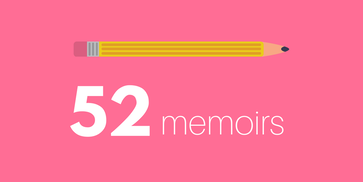
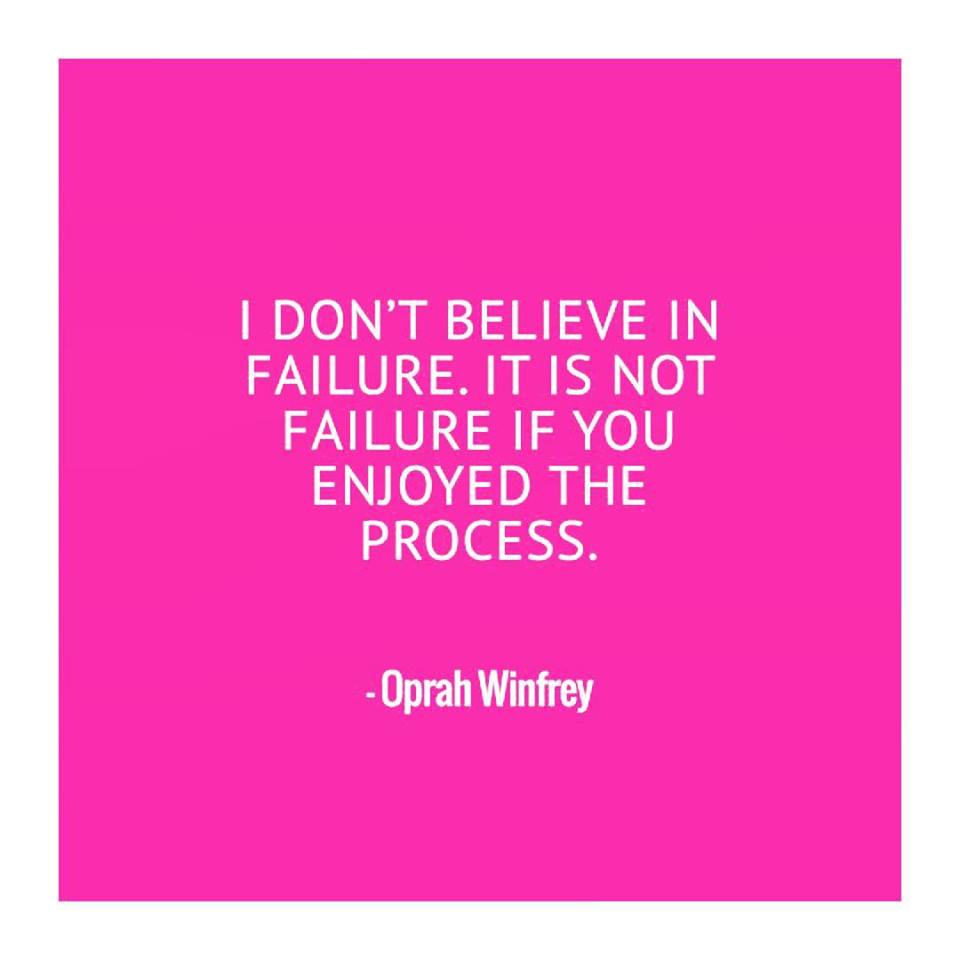
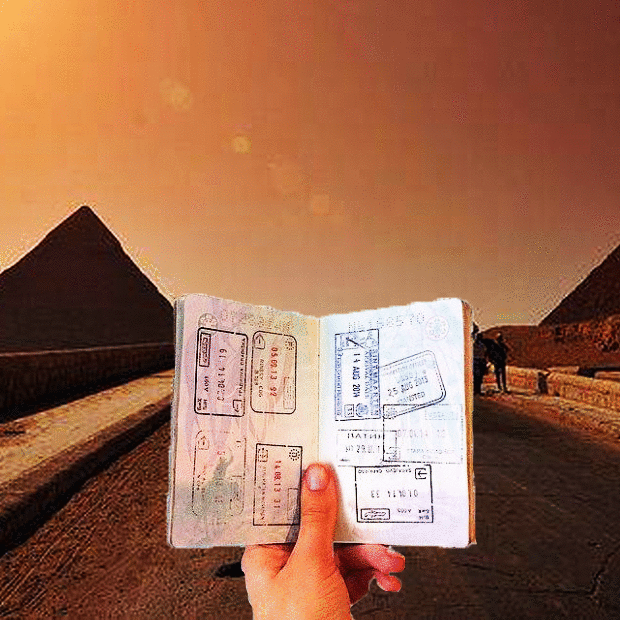
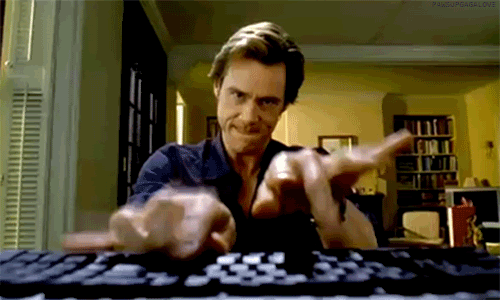
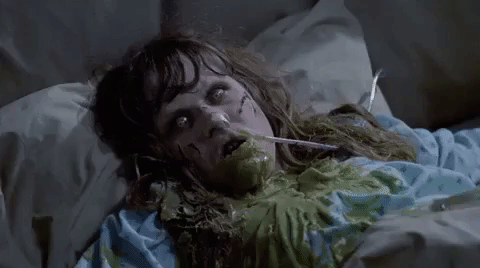
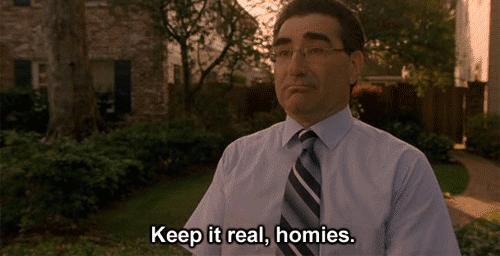

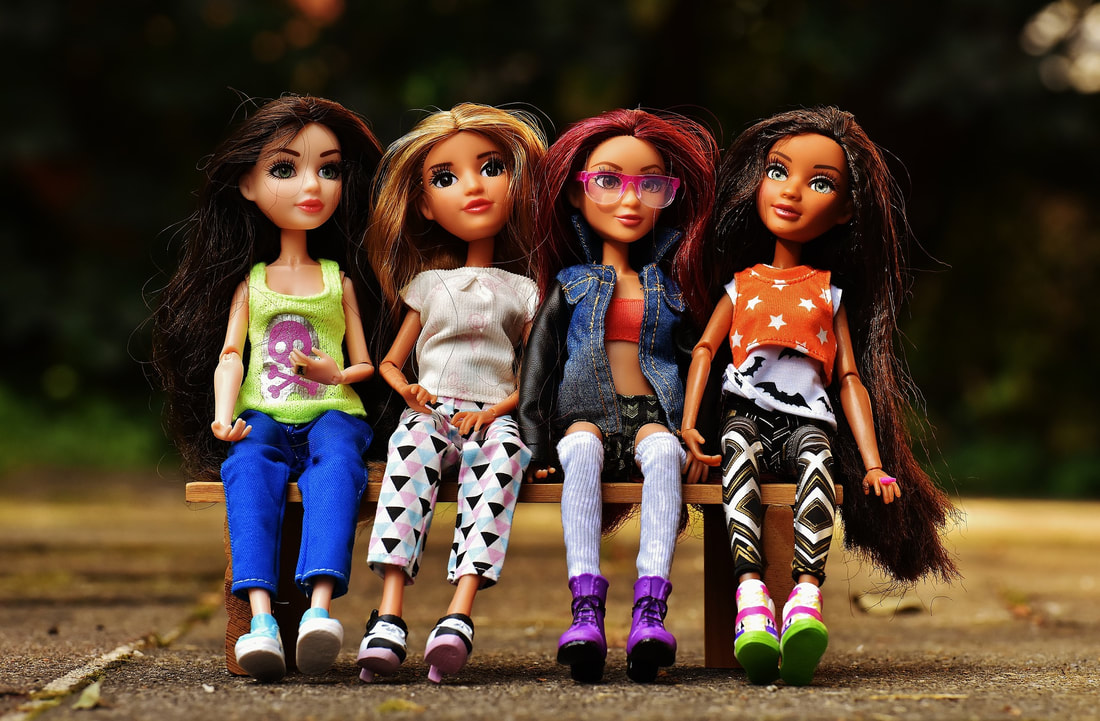
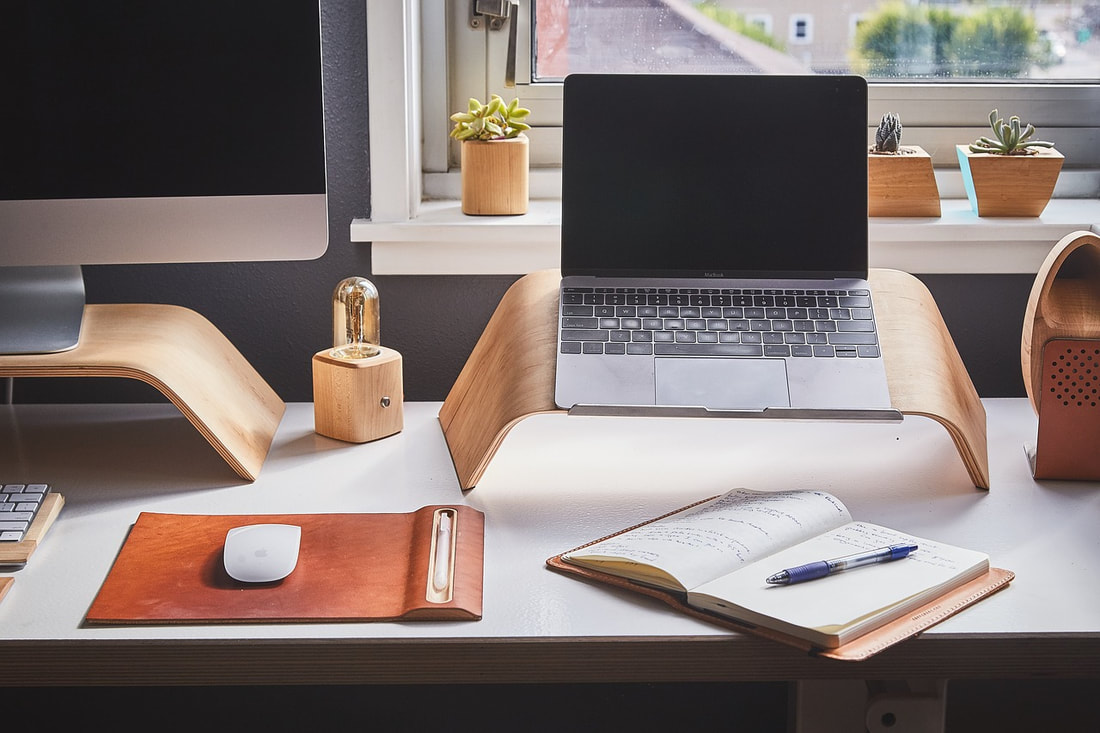
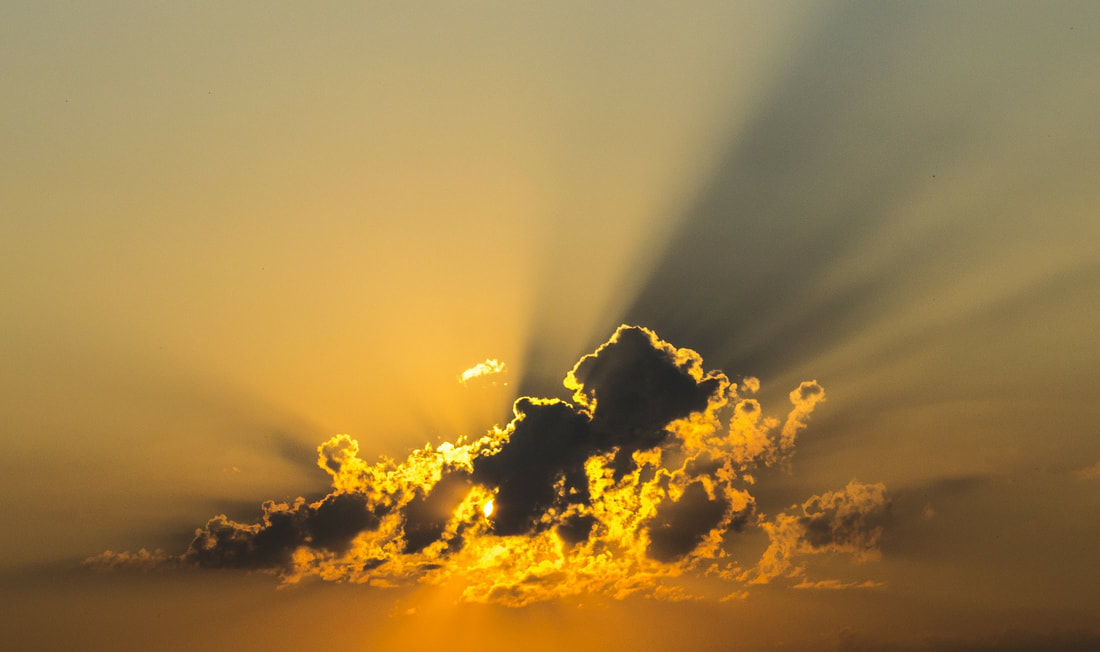
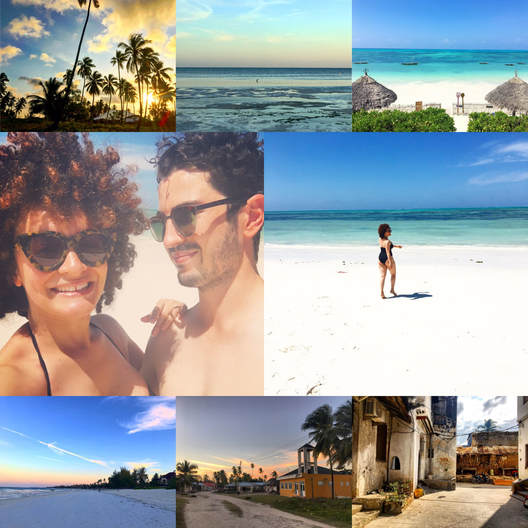

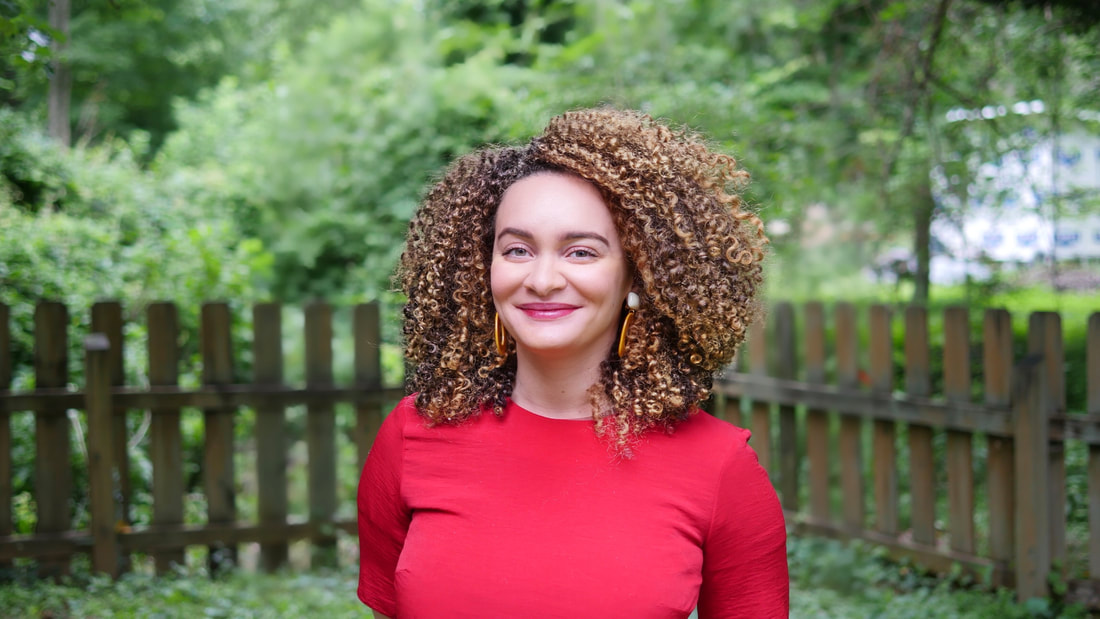
 RSS Feed
RSS Feed